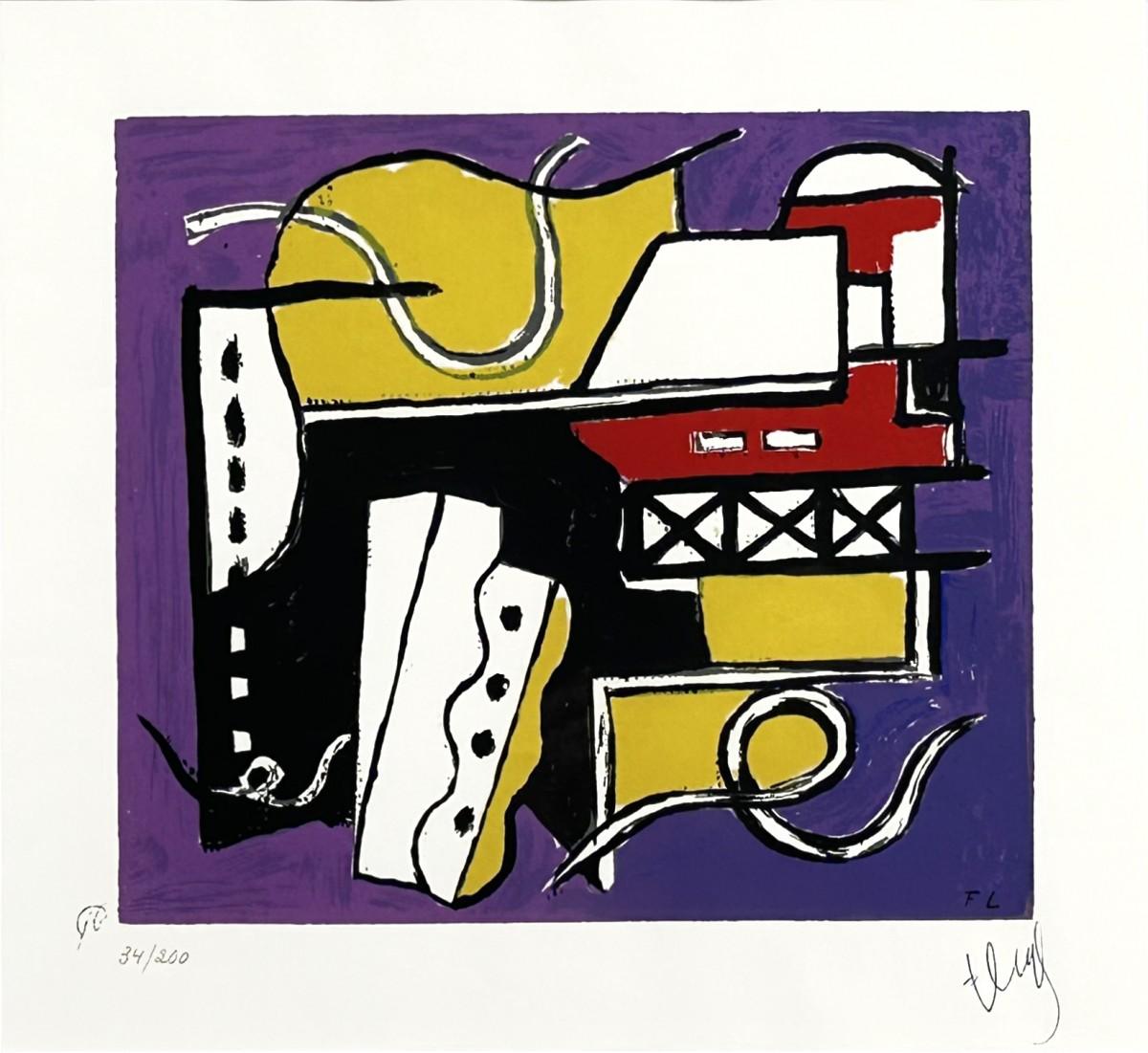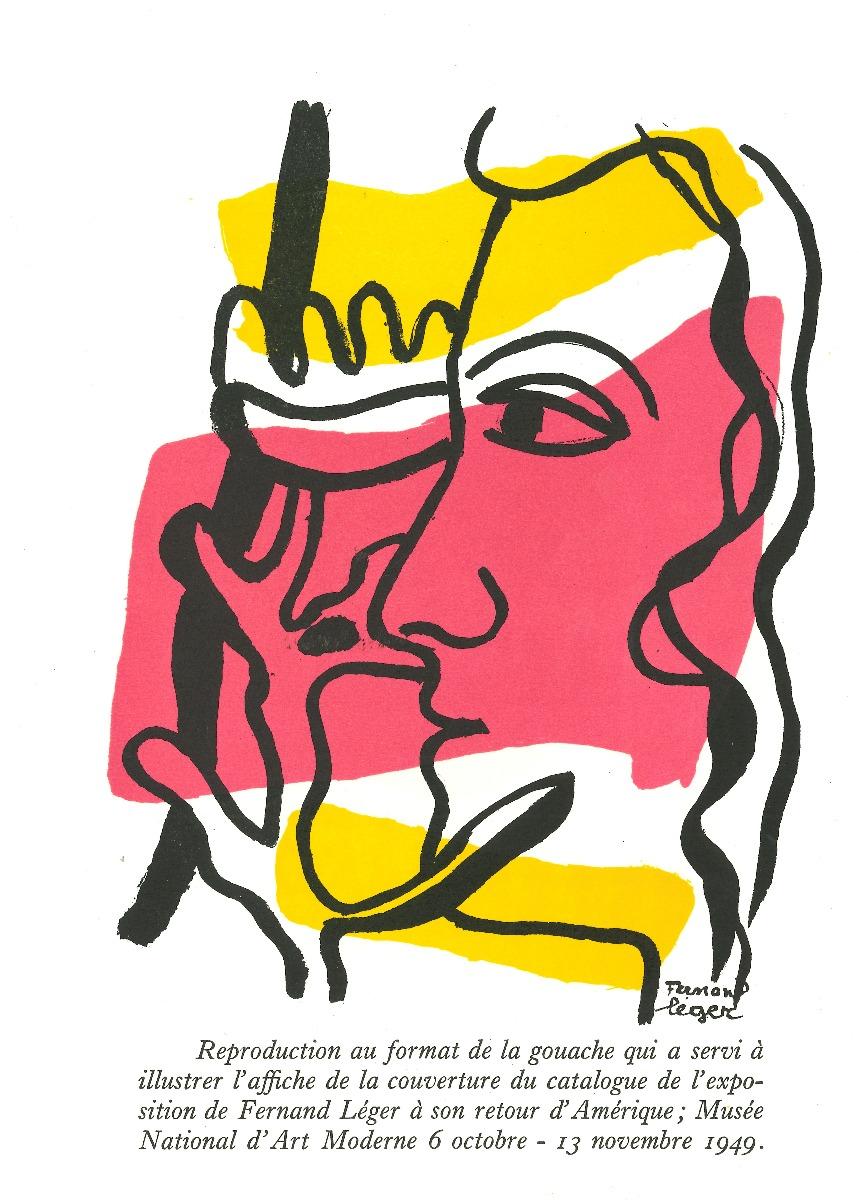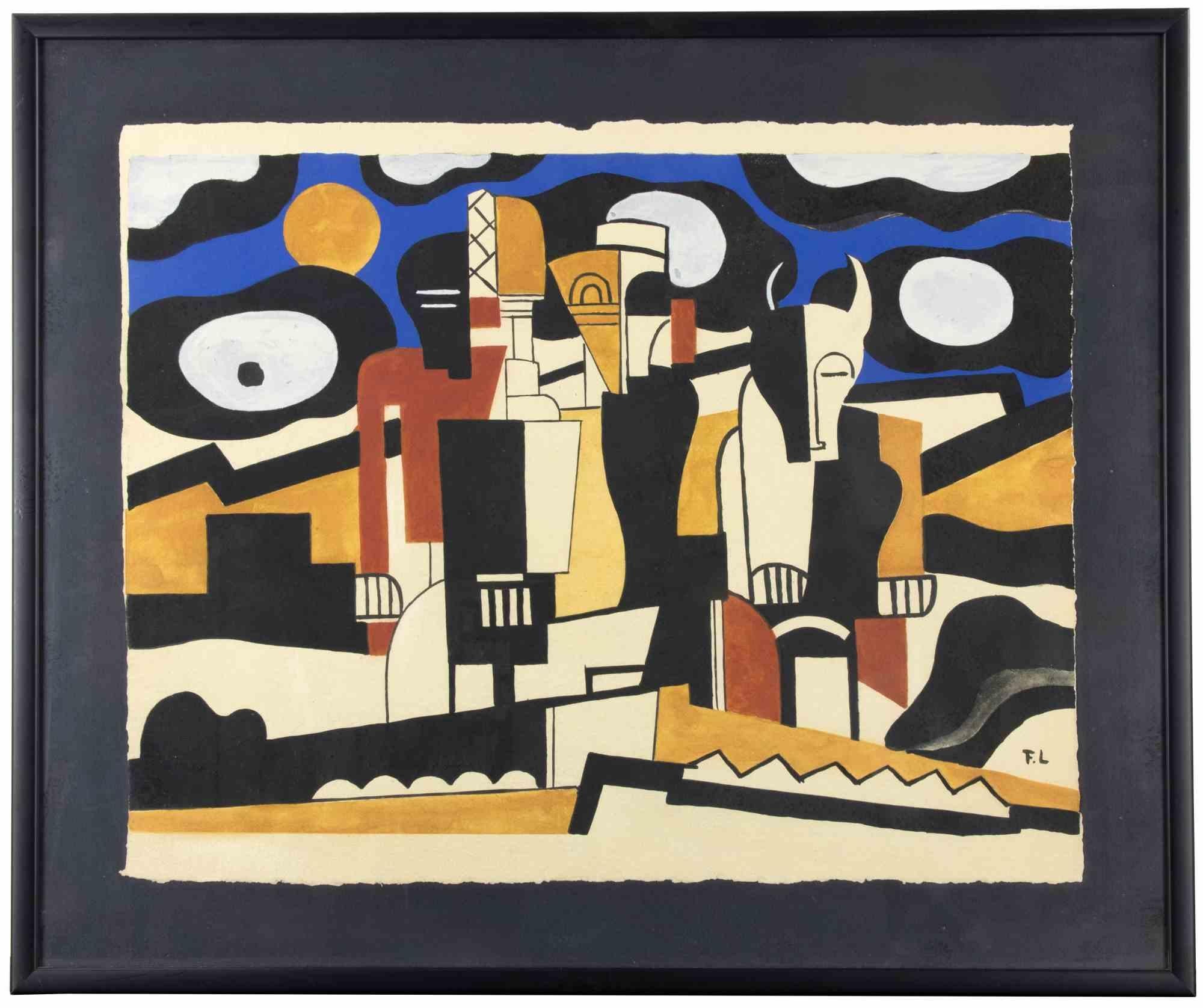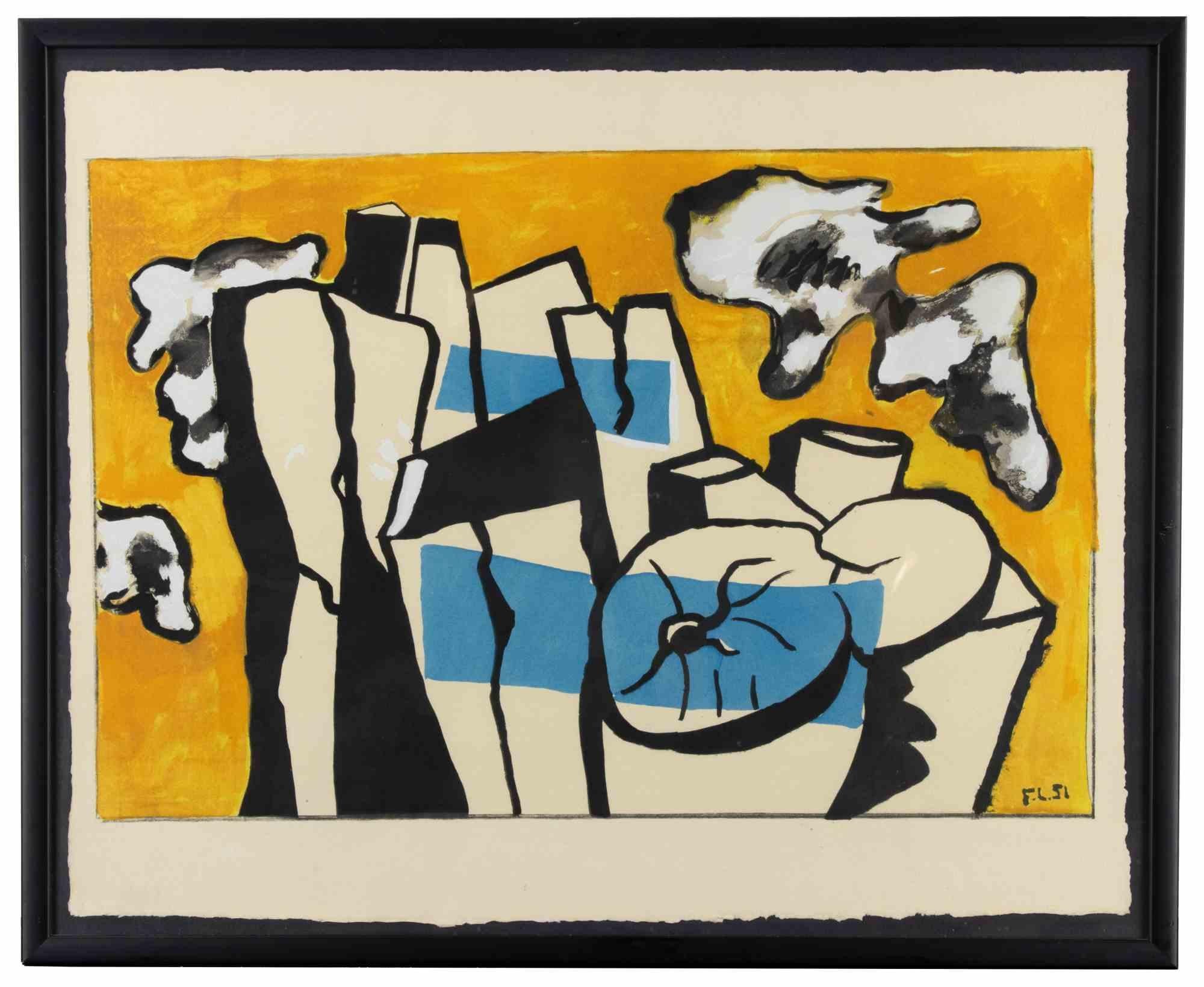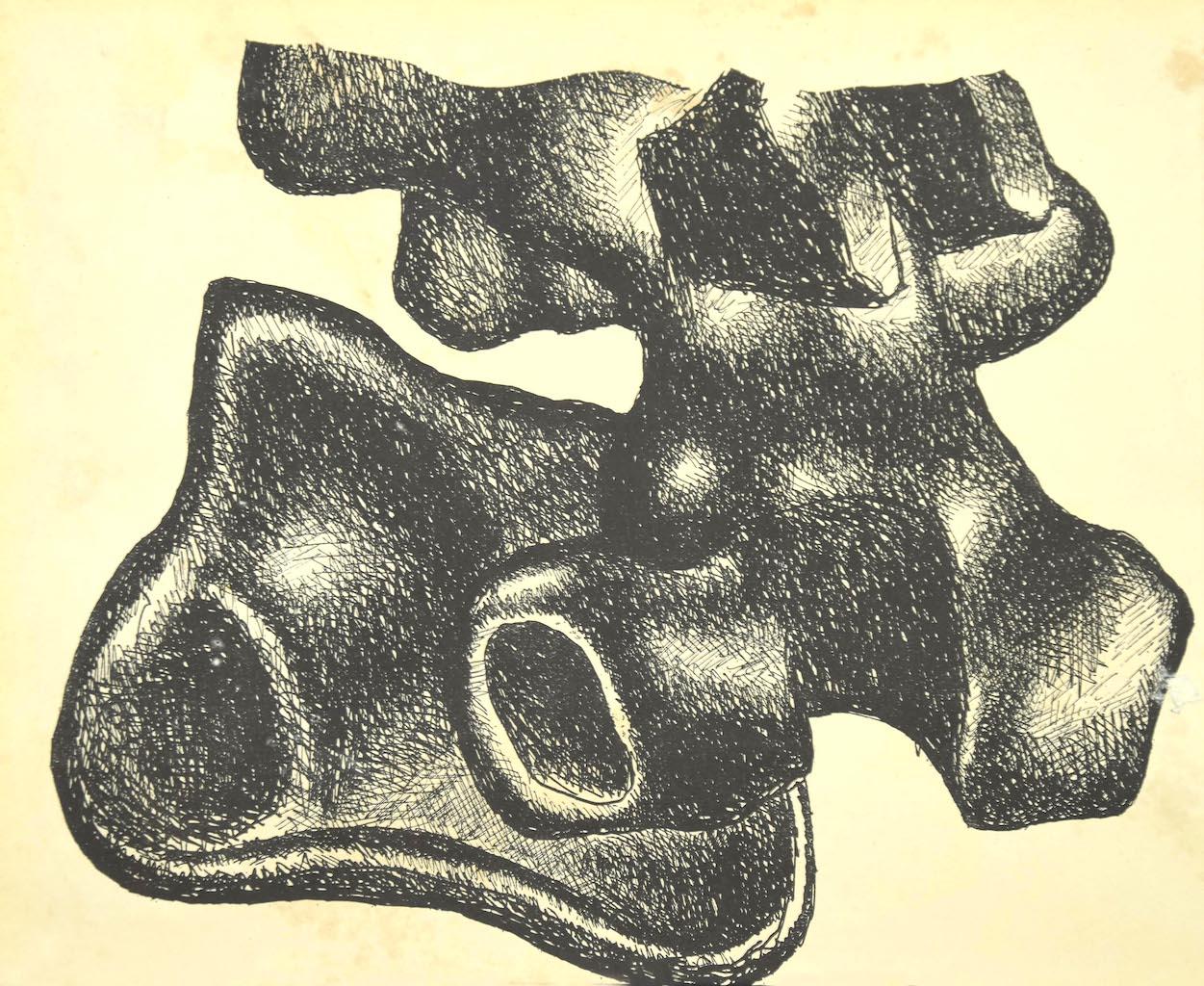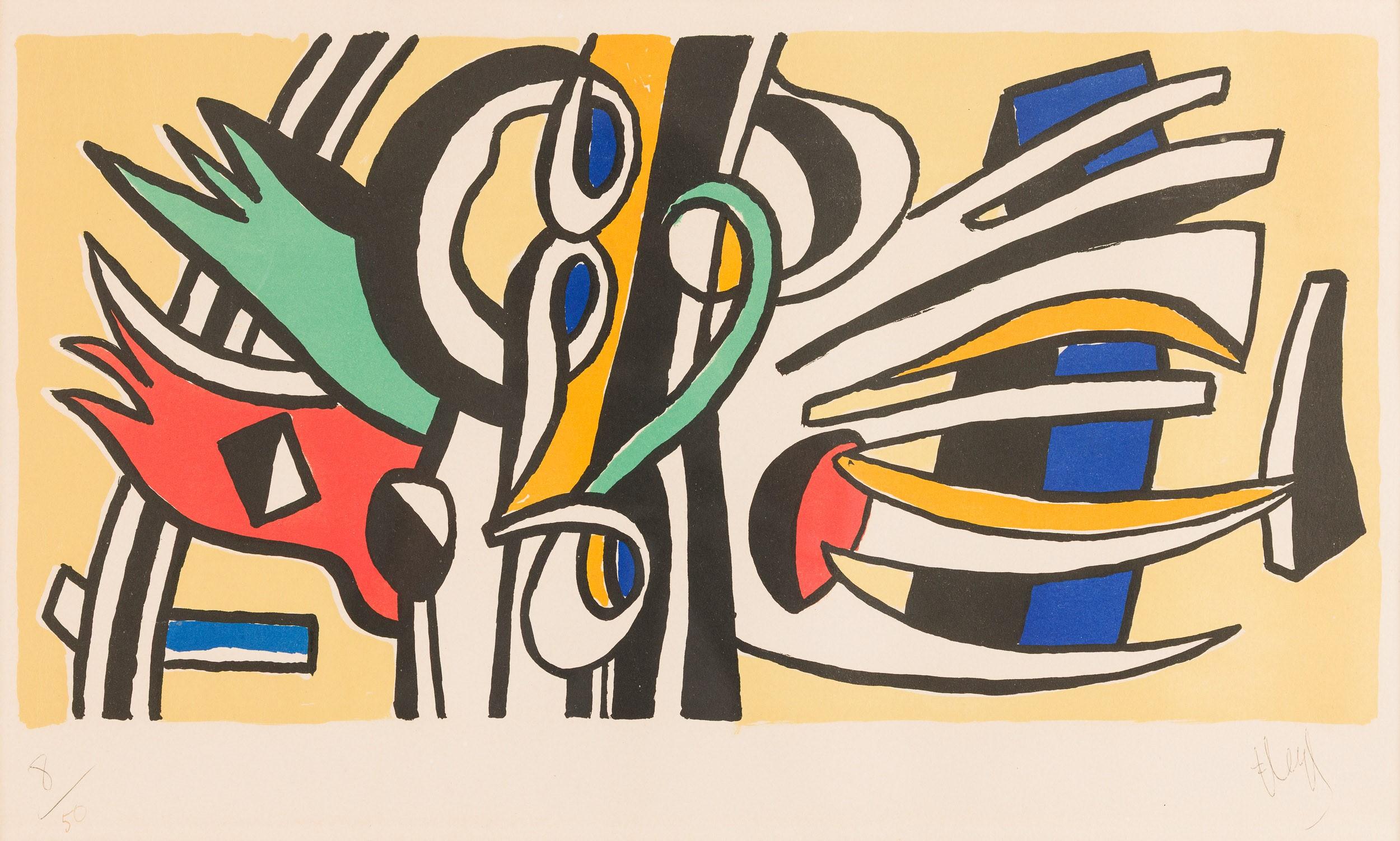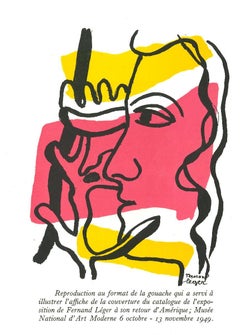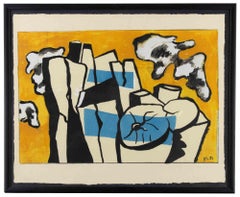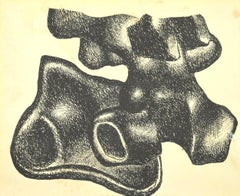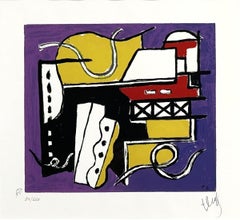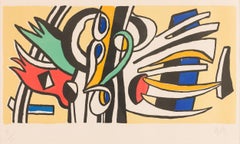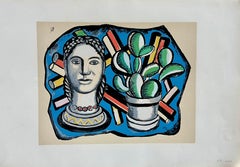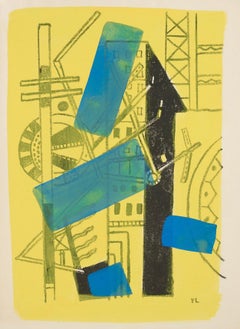Items Similar to Composition - Lithograph after Fernand Leger - Mid-20th Century
Want more images or videos?
Request additional images or videos from the seller
1 of 6
Composition - Lithograph after Fernand Leger - Mid-20th CenturyMid-20th Century
Mid-20th Century
$424.83
£322.84
€360
CA$596.91
A$654.49
CHF 342.15
MX$7,838.79
NOK 4,316.14
SEK 4,048.54
DKK 2,743.21
About the Item
Composition is a screen print realized after Fernand Léger in the mid-20th Century.
Monogrammed in plate and hand numbered in pencil lower right.
The composition is part of a collection of 1000 specimens, dry signature of the publisher "Serigraphie F. Leger".
Specimen no. 839/1000.
Joseph Fernand Henri Léger (1881-1955) was a French painter and sculptor. He is considered an important representative of Cubism. Initially working in an Impressionist style, Léger was later totally absorbed by Cubism under the influence of Modigliani, Chagall and Cezanne, whom he met in Paris. Léger is still seen as one of the most important representatives of Cubism. Works by Fernand Léger can be found in the major museums of the world, such as the Hermitage, the Guggenheim, the Moma, etc.
- Creation Year:Mid-20th Century
- Dimensions:Height: 14.97 in (38 cm)Width: 22.05 in (56 cm)Depth: 0.04 in (1 mm)
- Medium:
- Movement & Style:
- After:Fernand Léger (1881-1955, French)
- Period:
- Framing:Framing Options Available
- Condition:Insurance may be requested by customers as additional service, contact us for more information.
- Gallery Location:Roma, IT
- Reference Number:Seller: M-1181511stDibs: LU65037980762
About the Seller
4.9
Platinum Seller
Premium sellers with a 4.7+ rating and 24-hour response times
1stDibs seller since 2017
7,787 sales on 1stDibs
Typical response time: 1 hour
- ShippingRetrieving quote...Shipping from: Grasse, France
- Return Policy
Authenticity Guarantee
In the unlikely event there’s an issue with an item’s authenticity, contact us within 1 year for a full refund. DetailsMoney-Back Guarantee
If your item is not as described, is damaged in transit, or does not arrive, contact us within 7 days for a full refund. Details24-Hour Cancellation
You have a 24-hour grace period in which to reconsider your purchase, with no questions asked.Vetted Professional Sellers
Our world-class sellers must adhere to strict standards for service and quality, maintaining the integrity of our listings.Price-Match Guarantee
If you find that a seller listed the same item for a lower price elsewhere, we’ll match it.Trusted Global Delivery
Our best-in-class carrier network provides specialized shipping options worldwide, including custom delivery.More From This Seller
View AllComposition - Lithograph after Fernand Leger - 1982
By Fernand Léger
Located in Roma, IT
Leger Composition is a lithograph realized after Fernand Leger for the volume "A la même pierre, Fernand Mourlot Lithographe", publihed by Pierre Bor...
Category
1980s Cubist Figurative Prints
Materials
Lithograph
Maquette pour la Création du Monde - Lithograph after Fernand Léger - 1959
By Fernand Léger
Located in Roma, IT
Lithograph realized after Fernand Léger in 1959, on Moulin Richard de Bas paper.
Monogrammed in the plate.
It belongs to the suite "Contrastes", printed by Daniel Jacomet and publi...
Category
1950s Cubist Figurative Prints
Materials
Lithograph
Les Buches - Lithograph after Fernand Léger - 1959
By Fernand Léger
Located in Roma, IT
Lithograph realized after Fernand Léger in 1959, on Moulin Richard de Bas paper.
Monogrammed in the plate.
It belongs to the suite "Contrastes", printed by Daniel Jacomet and publi...
Category
1950s Cubist Figurative Prints
Materials
Lithograph
Composition - Original Lithograph after F. Léger - 20th Century
By (after) Fernand Léger
Located in Roma, IT
Composition is an original lithograph on paper realized by Fernand Léger (1881-1955).
Very good conditions except for some little foxings.
Sheet dimension: 23.5 x 26
On both sides...
Category
20th Century Cubist Figurative Prints
Materials
Lithograph
Nature Morte au Buste - Lithograph after Fernand Léger - 1959
By Fernand Léger
Located in Roma, IT
Lithograph realized after Fernand Léger in 1959, on Moulin Richard de Bas paper.
Monogrammed in the plate.
It belongs to the suite "Contrastes", printed by Daniel Jacomet and publi...
Category
1950s Cubist Figurative Prints
Materials
Lithograph
Les Amoureux - Lithograph after Fernand Léger - 1959
By Fernand Léger
Located in Roma, IT
Lithograph realized after Fernand Léger in 1959, on Moulin Richard de Bas paper.
Monogrammed in the plate.
It belongs to the suite "Contrastes", printed by Daniel Jacomet and publi...
Category
1950s Cubist Figurative Prints
Materials
Lithograph
You May Also Like
Fernand Léger, Composition géométrique (Geometric composition)
By (after) Fernand Léger
Located in Palo Alto, CA
Utilizing a bold color palette of purple, yellow, red, and black, Léger creates an abstract work in which shapes and forms create a constructive unit. We detect hints of a road, a la...
Category
1950s Modern Abstract Prints
Materials
Screen
$7,000 Sale Price
22% Off
Fernand Léger (1881–1955) – Composition murale – Lithograph on paper – 1951
By Fernand Léger
Located in Varese, IT
Lithograph on paper, edited 1951
Limited edition , numbered 8/50
Paper size: 50 x 65 cm
Very good conditions
Publisher : Pavillon français, Triennale de Milan
Printer : Mourlot, Par...
Category
1950s Abstract Prints and Multiples
Materials
Lithograph
Serigraphie Fernand Leger
By Fernand Léger
Located in Belgrade, MT
This print is part of my private collection. They were published in a numbered unsigned edition of 1000, and a signed edition of 200, printed by Serifraphie Fernand Leger, Paris and ...
Category
Mid-20th Century Abstract Expressionist Abstract Prints
Materials
Lithograph
$600 Sale Price
25% Off
Composition (Saphire 24-38), Les Illuminations, Fernand Léger
By Fernand Léger
Located in Southampton, NY
Lithograph on papier vélin teinté, fait a la main paper. Inscription: Unsigned and unnumbered, as issued. Good condition. Notes: From the folio, Les Illuminations, 1949. Published by...
Category
1940s Modern Figurative Prints
Materials
Lithograph
$6,796 Sale Price
20% Off
Free Shipping
Original French MCM Modernist Signed Abstract Lithograph Fernand Leger 1952
By Fernand Léger
Located in Portland, OR
Fernand Léger (1881-1955)
Femme sur fond jaune (Woman Against Yellow Background), 1952
Created in 1952, this original color lithograph is hand signed in ink by Fernand Léger (1881 - 1955) in the lower right margin. Printed by Fernand Mourlot, Paris out of the total edition of 150 unnumbered proofs on Arches wove paper. We at Bloomsbury Fine Art & Antiques can...
Category
1950s Modern Figurative Prints
Materials
Paper
French Modern Art by Fernand Léger - Untitled
By Fernand Léger
Located in Paris, IDF
Lithography on paper printed in 40's, numbered 42/300, 54,5 x 75,5 x 0,1 cm - 21,4 x 29,7 x 0,04 in, printed by Moulot Editions Editions with the stamp Fernand Léger on Musee Biot pa...
Category
1940s Cubist Abstract Prints
Materials
Paper, Lithograph
More Ways To Browse
Pablo Picasso Raphael Et La Fornarina
Paradise 20 Dali
Parasol Howard Behrens
Patrick Nagel On Sale
Paul Iribe On Sale
Pegge Hopper
Penal Cross
Peter Doig Zermatt
Peter Forster
Peter Max 9 11
Peter Max Earth Day
Peter Max Friends
Peter Max Ladies
Peter Max World Cup
Peter Wever On Sale
Phyllis Lucas Gallery Old Print Center
Picasso 156 Series Etchings
Picasso 1970 100
